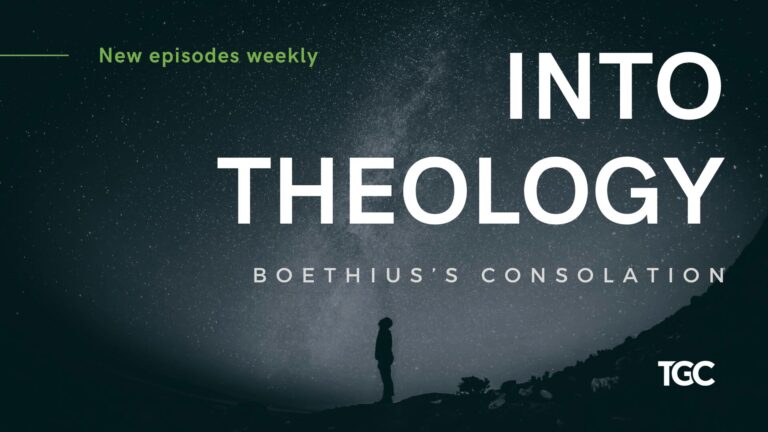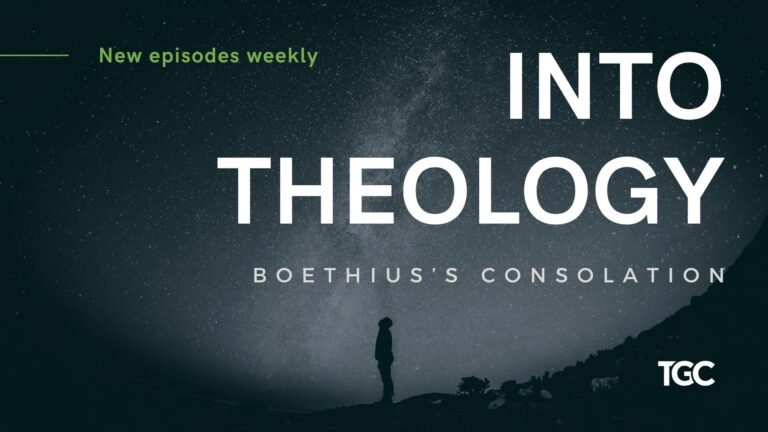Can governments bind a Christian’s conscience? They can clearly try. But that is not the question. I want to know if governments can bind our consciences.
To answer this question (and many others), we need to return to the Reformation. The Reformation in large part centred on the freedom of the conscience.
Martin Luther (1483–1546) famously claimed that his conscience is bound to God’s word. His work The Freedom of the Christian centred on a particular freedom that Christians enjoy. John Calvin (1509–1564) and William Perkins (1558–1602), the father of Puritanism, also wrote on Christian freedom and the conscience in ways that profoundly shaped the Christian faith.
I fear this reformational rediscovery of the conscience and Christian freedom has partially been lost to a discourse on individual rights, conscientious objections, and religious freedom.
This article attempts to recover a reformational view of the conscience. We need this recovery desperately in our age of pandemics and confusion over issues of religious conscience.
Conscience is a “mean” between God and man
According to Calvin, governments cannot bind consciences because they have no power over the conscience. God alone can free the conscience from guilt since the conscience sits as a “mean” between God and our guilt. Religious leaders may bind the conscience by requiring Christians to perform certain works to maintain their salvation. Hence, he criticizes the Roman church for tyranny in this sense.
The conscience is a God-given faculty which witnesses to one’s standing before God.
To see how he concludes these things, we have to take his argument step-by-step. In the first place, Calvin distinguishes between the outward forum and the forum of conscience. The former refers to outward works, while the latter our inward “awareness of divine judgment” and “a witness which does not let them hide their sins but arraigns them as guilty (Inst. 4.10.3).
Calvin further defines the conscience as “a certain mean between God and man, for it does not allow man to suppress within himself what he knows, but pursues him to the point of making him acknowledge his guilt” (Inst. 4.10.3).
Calvin is not here unique among reformed thinkers. William Perkins (1558–1602) maintained that “conscience is of a divine nature, and is a thing placed by God in the midst between Him and man, as an arbitrator to give sentence, and to pronounce either with man or against man unto God” (Works 8:9).
The conscience is a God-given faculty which witnesses to one’s standing before God. It is a “mean” between us and God (Rom 2:15–16, 1 Pet 3:21, and Heb 10:2; Inst. 4.10.3). The conscience “relates to God in such a way that a good conscience is nothing but an inward uprightness of heart” (Inst. 4.10.4; 1 Tim 1:5, 19; Acts 24:16).
But shouldn’t we have a good conscience before men?
Calvin knows that Paul speaks about a good conscience before God and men (Acts 24:16). “But,” explains Calvin, “this was said because the fruit of a good conscience flows forth and comes even to men. But properly speaking, as I have already said, it has respect to God alone” (Inst. 3.19.16).
Improperly speaking, we can talk about a good conscience before men. But at the end of the day, our conscience should be bound to God alone. If no one existed, we would still need to have a chaste mind because God commanded it (Inst. 4.10.4). Regardless of others, our conscience is bound to God.
We can improperly be said to have a good conscience before people. But properly speaking, God alone has the power to bind the conscience. Our consciences are bound to God alone.
We have liberty even if we give up our rights
Paul argues that we can be free while giving up our rights. A Christian may abstain from eating meat for another’s conscience (1 Cor 10:28). Yet Paul says we are still free: “For why should my liberty be determined by someone else’s conscience?” (1 Cor 10:29). One abstains to avoid giving “offence” (1 Cor 10:32) and because “I try to please everyone in everything I do, not seeking my own advantage, but that of many, that they may be saved” (1 Cor 10:33).
Calvin argues that our obligation before God is to avoid offence. One must not eat for the sake of loving one another. Eating or not eating is an outward act, and so it does not restrict one’s liberty. Calvin explains: “For we ought to abstain from them if they cause any offence but with a free conscience” (Inst 4.10.4).
He then interprets 1 Corinthians 10:28–29 by saying:
“A faithful man would sin if, previously warned, he nonetheless ate such meat. But however necessary abstention may be to him with regard to his brother, as is prescribed by God, still he does not cease to retain freedom of conscience. We see that this law, binding only outward works, leaves the conscience free” (Inst. 4.10.4).
God binds his conscience by the command to avoid offence. But as Paul says, one cannot eat meat and still have freedom or liberty.
For Calvin, outward acts like not eating meat do not affect our conscience which is free before God. But we do not eat for God’s sake since he tells us to love each other and avoid offending each other.
Romans 14 does not use the word conscience, but it follows the same sort of reasoning as 1 Corinthians 10. Calvin cites Romans 15:1–2 to summarize the passage’s point: “We who are strong have an obligation to bear with the failings of the weak, and not to please ourselves. Let each of us please his neighbor for his good, to build him up.”
Calvin wrote, ‘If God makes us stronger than others, He does not give us our strength to enable us to oppress the weak.’
This obligation to bear with one another does not impede genuine freedom of conscience. Eating meat or not eating means little. In his paraphrase of Romans 14:14, Calvin writes:
“The words, therefore, mean, ‘I know that all foods are clean, and therefore I leave them to you to use freely. I allow your conscience to be free from all scruples. In short, I do not simply keep you from the foods themselves, but desire that you should lay aside all thought of them, and not neglect your neighbour.’” (Com. Rom. 14:14).
We can lose our right to eat while retaining our freedom. Christian freedom looks like becoming all things to all people so as to save them (cf. 1 Cor 9:22). As Calvin writes, “If God makes us stronger than others, He does not give us our strength to enable us to oppress the weak” (Com. Rom. 14:1)
But surely human laws can bind our conscience?
A human law can only bind our conscience if it adds scruples. “For,” Calvin explains, “our consciences do not have to do with men but with God alone” (Inst. 4.10.5).
Of government laws, Perkins explains, “their laws can reach no further than to the outward man, that is, to body and goods, with the speeches and deeds thereof; and the end of them all is not to maintain spiritual peace of conscience, which is between man and God, but only that external and civil peace which is between man and man” (Works 8:37).
The language of “outward” and “external” map unto Calvin’s “outward forum” or outward works. The point is that civil law orders society, not our souls. One might however point to Paul in Romans 13:5: “Therefore one must be in subjection, not only to avoid God’s wrath but also for the sake of conscience.” Calvin recognizes the possible tension here.
In response, he traces the logic of Paul’s argument in Romans 13, distinguishing between genus and species, writing:
“I reply: we must first distinguish here between genus and species. For even though individual laws may not apply to the conscience, we are still held by God’s general command, which commends to us the authority of magistrates. And Paul’s discussion turns on this point: the magistrates, since they have been ordained by God ought to be held in honor [Rom. 13:1]. Meanwhile, he does not teach that the laws framed by them apply to the inward governing of the soul, since he everywhere extols, above any decrees of men, both the worship of God and the spiritual rule of right living” (Inst. 4.10.5).
Note the key distinction here: God’s general command to honor magistrates holds us (a major premise). The conscience then cannot be bound to outward commands of men. They do not apply “to the inward governing of the soul.”
Calvin will explain further: “human laws, whether made by magistrate or by church, even though they have to be observed (I speak of good and just laws), still do not of themselves bind the conscience. For all obligation to observe laws looks to the general purpose, but does not consist in the things enjoined” (Inst. 4.10.5).
Perkins adds the important caveat that God’s “general commandment” to obey magistrates binds our consciences to them when they legislate matters of indifference (Works 8:39). He continues, “Now such kind of laws have no virtue or power in themselves to constrain conscience, but they bind only by virtue of a higher commandment. ‘Let every soul be subject to the higher powers’ (Rom. 13:1).” Calvin would likely concur since he too affirms honouring authority obligates us.
The point is that the higher command to honour authority binds one’s conscience. The individual laws of government cannot do so. But we should generally obey laws for the sake of the higher command of God as found in passages like Romans 13:1, Exodus 20:12, and 1 Peter 1:13, 29 (passages which Perkins cites).
In short, the general purpose—honor authority—carries an obligation because it is for God’s sake; but the specific laws, even just ones, cannot bind our conscience though we might have to comply with them. We may abstain from meat even though we are free; we might be jailed and yet still free; we can obey speed limits and yet be free.
It is a category error to say civil ordinances (unless they overlap with the law of God) can bind our conscience. Civil liberty is not Christian liberty. Civil restrictions cannot restrict Christian freedom or bind our consciences. We are free before God because we have a good conscience by the justifying grace of Christ.
Can anything outside the Word of God bind our conscience?
Can someone be a tyrant over us if freedom of conscience centres on our peace with God?
When someone requires us to worship God in a new way and impose necessity upon us “even in matters that are free,” that person is a tyrant (Inst. 4.10.5–6). False bishops can impose non-scriptural laws like obedience to ecclesial laws for salvation.
If someone says we need to pray a rosary for salvation, that would be a sort of tyranny since it adds something beyond God’s word that maintains our good conscience before God. The tyrannical laws of Rome “torture the consciences of men” (Com. 1 Cor. 11:2).
Extreme rigour can also bind the conscience if understood as necessary (Inst. 4.10.9). Following Roman observances or reverting to laws valid under Moses too would be a form of oppression since shadows cannot reach Christ (cf. Inst. 4.10.11).
In summary, Calvin argues that our consciences are bound to God and his word alone. Since our conscience is an inward movement and witness between us and God, then only a requirement that adds to the Gospel’s saving message can truly bind our conscience.
Unless someone says we must do this to be saved, then outward forms of human law cannot bind our conscience. They cannot force us to look elsewhere than the Gospel for our salvation. They can only guide how we order our lives in the civil sphere, limiting, for example, the speed at which we can drive.
The conscience for Calvin is the mean between our guilt and God. A pure or clean conscience properly means a forgiven conscience before God.
A clean conscience will mean that men improperly can confirm the fruit of a holy life. Yet properly speaking, our conscience is bound to God’s word alone, not the justification of humans.
We are free even if governments restrict our outward works
Martin Luther famously wrote: “The Christian individual is a completely free lord of all, subject to none. The Christian individual is a completely dutiful servant of all, subject to all.” Luther knew God alone justified him, gave him freedom of conscience. He also knew that he was to be a “dutiful servant” during his time on earth.
Christian freedom means our freedom before God—our freedom to eat meat or abstain for the sake of others because our salvation relies neither on eating nor on not eating.
It does not mean our personal liberties before men. These rights might be naturally good and worth fighting for. But confusing such liberties with the freedom of a Christian mixes civil freedoms with the Gospel of Freedom.
It obscures our freedom before God. It may imply that our social or civic freedom is part of the Gospel. The Gospel promises liberty, yes, but not from taxes to the government and duties to society. “But freedom,” Calvin writes, “is especially an appendage of justification and is of no little avail in understanding its power” (Inst. 3.19.1).
Calvin continues, “unless this freedom be comprehended, neither Christ nor gospel truth, nor inner peace of soul, can be rightly known” (Inst. 3.19.1). The conscience witnesses to our standing before God, bearing dread or relief.
Christian liberty does not equate to liberal rights in a civil society. Both are good, but they are not the same thing.
Perkins too affirms, “Christian liberty is a spiritual and holy freedom, purchased by Christ” (Works 8:57). He continues, “I say it is spiritual, first, to put a difference between it and civil liberty, which stands in outward and bodily freedom and privileges” (Works 8:57). Christian liberty is not civil liberty.
Perkins also affirms the spiritual nature of Christian liberty “second, to confute the Jews, who look for earthly liberty by Christ, and the Anabaptists, who imagine a freedom from all authority of magistrates in the kingdom of Christ” (Works 8:57). That sort of libertarianism has nothing in Christian liberty.
Christian liberty does not equate to liberal rights in a civil society. Both are good, but they are not the same thing.
No shadow of the Law of Moses can justify or maintain our salvation. Christ alone can. No civil right or freedom can justify or be loaded onto the back of a Christian as necessary to Christian faithfulness.
I return to the opening question: can governments bind our consciences? They can try, yes. But they have no power to bind our conscience. God alone can, and before him, we are most free even if our outward life is most restricted.












